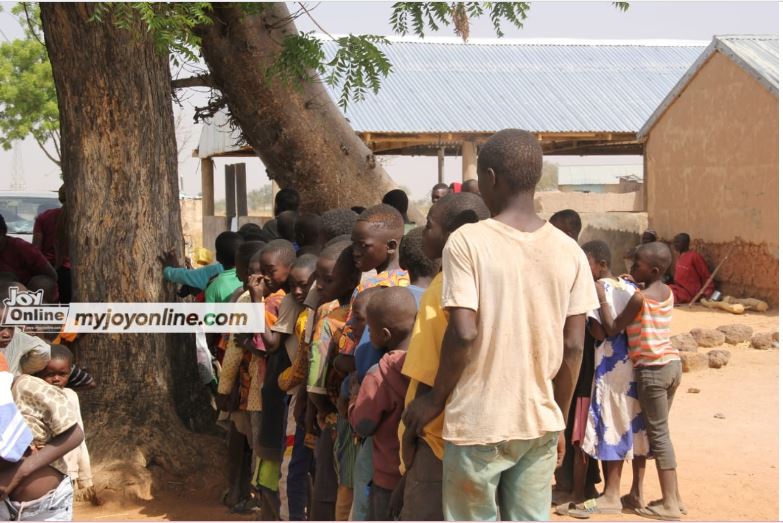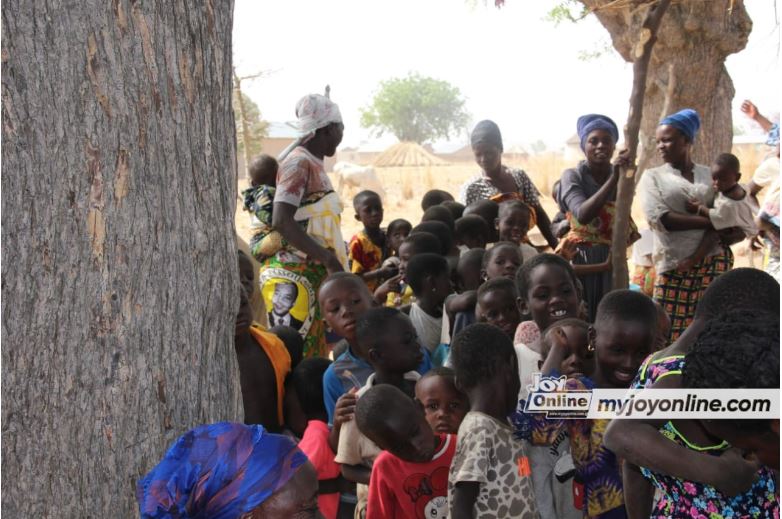Children erupted into joy and swarmed around the distribution centre as a Nissan pickup loaded with clothes, shoes, rice, salt, and other food items approached Zabugu, a community near Bawku in the Upper East region.
On December 29, 2022, two days before the New Year, it was a warm Thursday afternoon. Both adults and children waited patiently to receive their share of the goods gathered from charitable people across Ghana in a manner as though they were spectators in a stadium to watch a football match.
Those who lacked clothing and shoes moved toward the pickup that had stopped in front of a house near a mosque.
Other residents including children and adults had also started to move closer to the Nissan pickup, and soon a group of people engulfed in awe emerged.

Many children who did not have or have few clothes or shoes got one or two of them.
Bolgatanga Senior High School student Asaanbil Mustapha, 18, said, “I don’t know what it means to have these things.”
Items like books and a solar lamp were given to Asaanbil so he can continue to study at home.
A rough count put the number of recipients at close to 300, either having given up on education or juggling it with manageable problems.
There was no difference in the situations at Kaadi, Agumse, and Atuba. Because of their extreme poverty, parents and guardians cannot afford to buy essential items for their children.
The majority of children in the communities have experienced daily effects from that. Many of them had no expectations for the holiday season because of the harsh realities they had to face early in life.
One of the kids, who wished to remain anonymous, said, “Honestly, I didn’t expect anything.”
Sung Bie’la Foundation, a non-governmental organization, visited the communities with some of its staff and distributed the items. Addressing the residents, the initiative’s founder, Hajia Zenabu Awinbe Salifu, said, “It is my responsibility to help the underprivileged through some support from friends to improve their quality of life.”

Zenabu states that wanting to support society has always been a personal passion of hers.
In Zabugu, Agumse, Atuba, and Kaadi, things that other children take for granted are actually necessities.
“I want everyone here to know that this is not the end for them; you will rise above this and transform into a better person someday, who will also return to assist those in need.”
Some elderly women who collected their gifts were excited.
When asked what prompted the excitement, one of them responded that she never imagined she would receive such items.
Only death, according to Zenabu, will make her give up helping society’s less fortunate.





